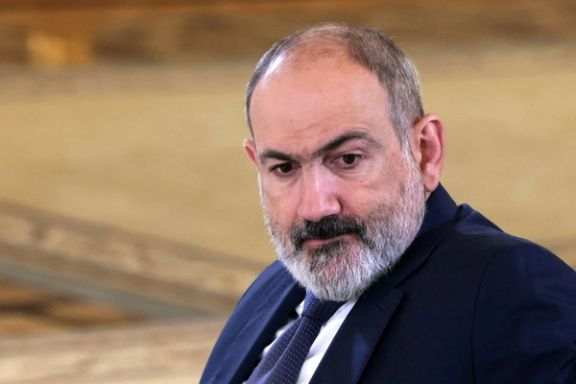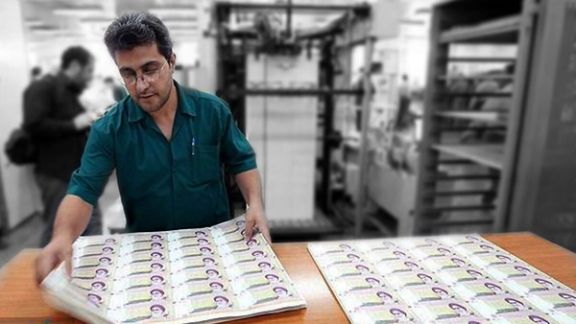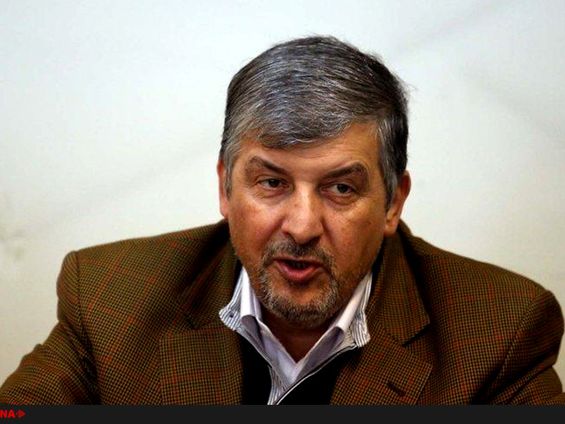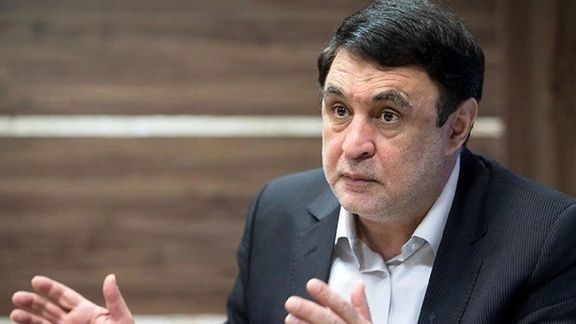Iran's President Holds Talks With Armenian PM Amidst Caucasus Tensions

In response to a call from Armenia's prime minister Nikol Pashinyan on Saturday, Iran's President Ebrahim Raisi addressed the evolving situation in the Caucasus region.

In response to a call from Armenia's prime minister Nikol Pashinyan on Saturday, Iran's President Ebrahim Raisi addressed the evolving situation in the Caucasus region.
Raisi reiterated that the Islamic Republic of Iran is against any alterations to the region's borders, as Azerbaijan threatens Armenia's territory in the south.
He also expressed Iran's readiness as a neighboring power, claiming that Tehran can play a constructive role in preventing further conflicts and preserving the geopolitical stability of the region.
Raisi’s message, conveying this "resolute stance," was communicated through a tweet by Mohammad Jamshidi, the Political Deputy of the President's Office. The message highlighted cooperation with external entities, conducting joint military exercises, and engaging in suspicious travels outside the established 3+3 format are discouraged.
Jamshidi was probably referring to Armenia holding small military drills with the United States in NATO framework.
As tensions escalate between Armenia and Azerbaijan, reports originating from Iranian sources on social media indicate that Tehran has issued a stern warning to Baku, cautioning against potential military actions.
Numerous sources have suggested that Iran's diplomatic channels and high-level meetings have played a pivotal role in delivering a clear message to Azerbaijan, specifically discouraging any aggressive actions in the southern Syunik region of Armenia.
This warning follows recent reports hinting at Azerbaijan's military preparations in the Nagorno Karabakh region, which have raised concerns about potential military actions affecting both the enclave and Armenia. Iran has consistently opposed any Azerbaijani encroachments on Armenian territories.

As the Iranian government claims economic successes, a central bank report shows the money supply increased by 45% this year, heralding more high inflation.
President Ebrahim Raisi has been making speeches claiming to have controlled inflation and reduced money printing, promising that the 50-percent inflation rate will drop to 30 percent in March 2024.
However, a report by the Central Bank of Iran (CBI) quoted by media in Tehran says that in April 2023 the money supply showed a 45-percent growth over the same time last year. Money in circulation reached a staggering 88,700,000 trillion rials or around $177.4 billion calculated based on the exchange rate of 500,000 rials per dollar.
This is the highest level of money in circulation in Iran’s history, fueled by the government’s borrowing from the CBI that inevitable leads to printing money without any foreign currency or gold backing.
The Islamic Republic has always been printing excess money in its 44-year history, but at different tempos. When oil export revenues were high enough to support government expenditures, less money was printed. However, when oil prices declined or Iran was subjected to oil export sanctions, printing increased and rial’s value suffered. Sometimes the rial remained relatively stable for a few years, such as the second half of the 2000s, when oil exports and prices were high.
In 1978 before the revolution, one US dollar bought 70 rials, compared with around 4,000 in early 2018, and 500,000 now.
The United States withdrew from the JCPOA nuclear deal in May 2018 and imposed both oil export and international banking restrictions on Iran. That quickly translated into higher inflation and a hasty retreat of the rial. The process has only picked up speed in the past year, as the rial fell from 260,000 to 500,000 per dollar.
Other factors that have not allowed the oil wealth to boost the economy, which has had no growth since 2012, are an inefficient economic system and lack of foreign investments.
Estimates by Iranian economists indicate that 80 percent of the economy is controlled by the government, which controls banking, automakers, and the energy sectors, among many others. Political appointment of managers, nepotism, government interference and bad planning have led to inefficiency.
These factors in addition to international and US sanctions due to Iran’s confrontational foreign policy have prevented any meaningful volumes of foreign investment. This has left the economy mainly dependent on oil export revenues and more vulnerable to sanctions or low energy prices. Lack of investments have even damaged production in the oil and natural gas sectors, with less than one-tenth of investments compared to Saudi Arabia, and little technology infusion. Saudi Arabia’s Aramco energy company has been investing hundreds of billion dollars over the past two decades, with annual investments reaching a staggering $40-50 billion recently.
However, Iran's oil exports have been increasing and reached almost pre-sanctions levels in August, but the additional shipments so far have not translated into a financial improvement, lower inflation and a higher rate for rial.
According to a July report in Aftab News website, affiliated with Iran’s reformists, the government borrowed around $12 billion from four major quasi-private banks in three months ending June 21. To ensure availability of funds, it issued directives to these banks to reduce lending to the private sector, causing the loss of 500,000 jobs amid an already serious economic crisis.
These banks, which already face cash flow problems, rely on the central bank to replenish their reserves, Therefore, whether the government directly borrows from the CBI or from other banks, the money supply increases.

British authorities confirmed the apprehension of Daniel Khalife, a 21-year-old former soldier with alleged ties to Iran, following a four-day manhunt in West London.
Scotland Yard disclosed that Khalife had been taken into custody in the Chiswick area, located approximately four miles away from Wandsworth prison, where he had managed to escape on Wednesday morning.
Presently, Khalife remains in police custody, facing a range of charges including espionage on behalf of an undisclosed enemy state, suspected to be Iran, as well as the acquisition of information with the potential to aid acts of terrorism and a conspiracy to orchestrate a false bomb threat.
British Prime Minister Rishi Sunak expressed his satisfaction with Khalife's arrest and offered commendations to both law enforcement officers and the public for their unwavering dedication in locating the fugitive. Speaking at the G20 summit in Delhi, the Prime Minister also revealed the initiation of an inquiry by the justice secretary into the circumstances surrounding Khalife's escape, emphasizing that this investigation would persist.
On Friday, the police officially confirmed that Khalife had been observed emerging from beneath a lorry at Wandsworth Roundabout shortly after his escape. In a bid to facilitate his capture, authorities had issued a reward of up to £20,000 for information leading to his arrest.
Daniel Abed Khalife embarked on his military career in 2019, stationed at MoD Stafford, also known as Beacon Barracks, prior to his disappearance on January 2. The incident was linked to an alleged bomb hoax. Subsequent court proceedings at Westminster Magistrates' Court unveiled allegations of Khalife planting mock explosive devices with the intent of inducing fear.

The US Department of State has condemned reports of sexual assault against Nazila Maroufian, a female Iranian journalist, arrested twice this year for her political views.
It described the Iranian regime's systematic use of sexual violence with the aim of "instilling fear, shame, and silence" in victims as reprehensible.
The US Department of State, in a post on its Persian-language page on the X social media network on Friday, wrote: "The use of sexual violence by the Iranian authorities further demonstrates the courage of Iranians against such reprehensible actions aimed at intimidating them."
This department emphasized Washington's commitment to continue supporting the fundamental rights and freedoms of the Iranian people and collaborating with allies and partners to hold human rights violators accountable.
Maroufian, a detained journalist in Evin Prison, announced in an audio file released on Thursday that she had been sexually assaulted during her detention. She also stated that she had gone on a hunger strike in protest to the suffering imposed on her and other women by the government.
This journalist, who had recently been released on bail, was rearrested August 30 in a violent manner.
She began a hunger strike in Evin Prison last week, demanding unconditional release and the restoration of her dignity, as well as punishment for the officials who had beaten her during her detention.
However, Mizan News Agency, affiliated with the Iranian judiciary, dismissed Maroufian’s disclosure as a "claim" and stated that she and her lawyer had not registered any complaint in this regard.
The Iranian government routinely denies reports about torture, harassment, or sexual assault on prisoners and has not addressed the disclosure or complaints of women and men in custody in this regard.

An influential conservative in Iran claims that hardliners who are purging others from the political landscape are so few that they couldn't even fill two buses.
Mansur Haqiqatpur, the former deputy chairman of the Iranian parliament's National Security Committee, stated in an interview with Rouydad24 in Tehran, "Despite their small numbers, these ultraconservatives have seized control of all government institutions."
Referring to their widespread influence and their “irresponsible behavior,” Haqiqatpur emphasized that the nation, the media, and politicians should hold the ultraconservatives accountable for their destructive performance.
A few dozen hardliners in parliament and in President Ebrahim Raisi’s administration have increasingly resorted to eliminating others from the government bureaucracy and even universities, accusing some of insufficient “revolutionary” credentials.

The moderate conservative politician stated, "What we refer to as political purification today has always existed since the 1979 revolution; however, the trend aiming to limit political power to ultraconservatives has gained renewed momentum in recent years."
He suggested that everyone, including the hardliners, should realize that Iran belongs to all Iranians, and political purification will disappoint young Iranians who wish to play an active role in determining the fate of their country. Meanwhile, Haqiqatpur added, "We should not try to eliminate critics. It is unfair to hand over the entire affairs of the state to a group so small that they couldn't fill a couple of buses."
He criticized the government for suspending capable professors from universities and replacing them with non-experts. He reiterated that political purification is poison for the country and lamented that Gen. Hossein Alaei, the former commander of the IRGC naval force, is not allowed to teach at the university due to his reformist tendencies.
Meanwhile, prominent conservative commentator Nasser Imani stated in an interview that the influence of those pretending to be revolutionaries is a cause for concern. He said the rising influence of fake revolutionaries and the isolation of experts in the Iranian academia pose a threat to the country.

Imani added that the fake revolutionaries claim that anyone other than themselves is not a revolutionary. Khabar Online reported that, according to Imani, a group of individuals who see themselves as super-revolutionaries have infiltrated Iran's executive body and the country's propaganda machine.
However, Imani stated that Iranians' behavior in the upcoming parliamentary elections in March will show whether they will stand against these totalitarian ultraconservatives or tolerate their presence in state institutions. Imani also noted that the ultraconservatives do not attach any significance to public opinion, evident in the behavior of the state television that they control, which ignores people's demands and preferences for more open and balanced media.
Imani encouraged other conservatives to stand against the hardliners. Like Haqiqatpur, Imani confirmed that, compared to the large body of the conservative camp, the ultraconservatives are only a small group of politicians seeking to monopolize political power. He added that true conservatives should shun and isolate this vocal minority.
In another development, Iranian lawmaker Ali Rezaei told the press that Raisi’s ultraconservative government continues to blame others for the problems it has created or failed to solve. Blaming others, including the previous government, for problems, is not acceptable now that the parliament has only nine months left in its term, and the government has been in office for over two years.
Rezaei added that people can hardly believe that the dire economic situation of the country is likely to improve because of the government’s and parliament's performance. "Years ago, the people's problem was how to buy a house or a car. Now, the people's daily concern is how to feed themselves," he said.

As tensions escalate between Armenia and Azerbaijan, Iranian sources on social media have claimed that Tehran has sent a serious warning to Baku not to launch an attack.
One analytical news account on social media, alleged that Iran has cautioned Azerbaijan against any potential aggression in the southern Syunik region of Armenia, through diplomatic contacts and various meetings.
After a long blockade of the Armenian-populated Nagorno Karabakh region inside Azerbaijan, reports in recent days indicated that Baku might be preparing for military action against the enclave and Armenia. Tehran has traditionally opposed any Azerbaijani encroachment on Armenian territory.
The source added, "Azerbaijan has taken actions, in coordination with Israel and Turkey, to formulate Plan B in case of military intervention by Tehran against Baku."
The Islamic Republic of Iran has previously cautioned against any alterations to the political geography of the Caucasus region and the adjustment of international borders. Iran declared that if either side seeks to change the geopolitical landscape of the Caucasus or international borders in the Karabakh region, Iran will set aside its neutrality and respond directly.
Recently, Armenian Prime Minister Nikol Pashinyan issued a warning regarding Azerbaijan's provocative military movements along the border and in the Karabakh region. Pashinyan expressed concerns over the possibility of heightened tensions, urging the international community to take preemptive measures to prevent what he referred to as a new explosion in the Caucasus.
It should be noted that Armenian authorities in Yerevan previously confirmed that the country would host a joint exercise with US forces next week to enhance cooperation in international peacekeeping missions.






